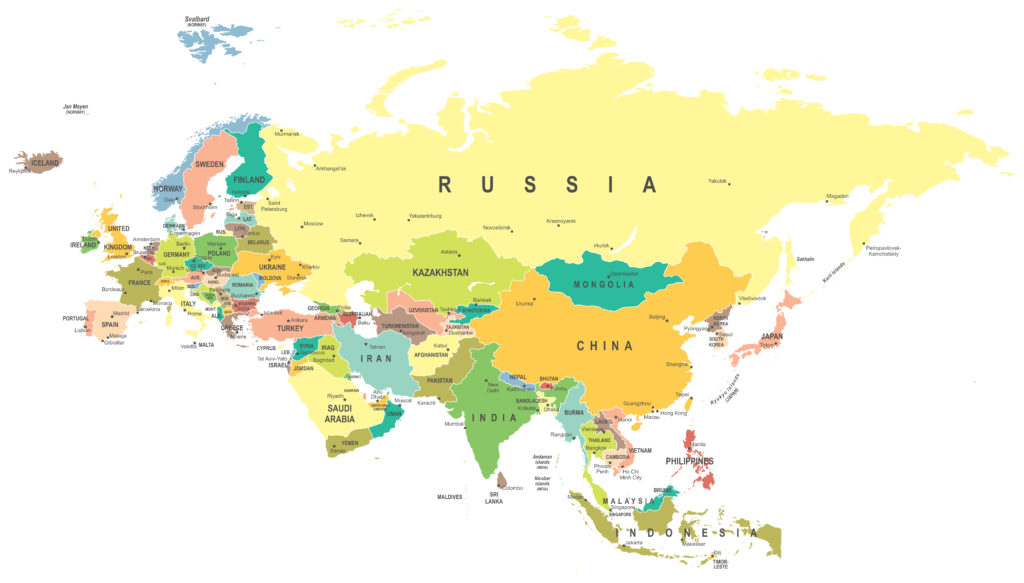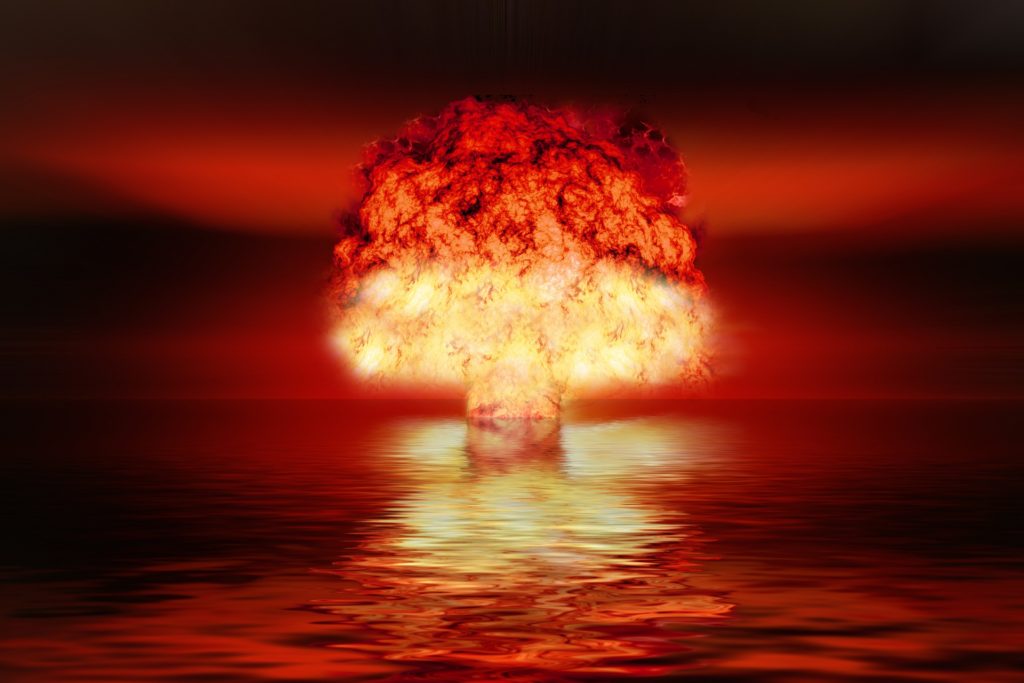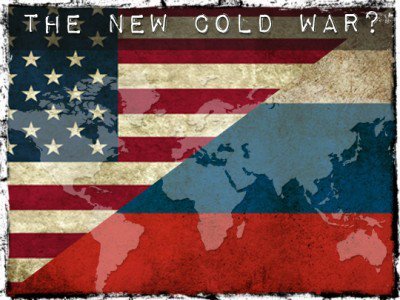
By Branko Marcetic, Jacobin Magazine, 2/10/22
If you’ve relied on establishment media to follow the events in Ukraine these past eight years, then chances are what you know is wrong. Despite — or, more likely, because — the tumult in Ukraine has reared its head prominently in both US foreign policy and its domestic politics these past few years, the country’s history and its ongoing internal conflicts have been some of the most propagandized for Western audiences.
Dr Volodymyr Ishchenko, a sociologist and research associate at the Institute for East European Studies, has spent years writing about Ukrainian politics, the country’s 2014 Euromaidan Revolution, and the messy intersection of protests, social movements, revolution, and nationalism. He recently spoke with Jacobin’s Branko Marcetic about what Western audiences need to understand about Ukraine and the ongoing international standoff over it.
BM
Why are Ukrainian officials and European governments taking such different stances on the question of the prospects for a Russian invasion than the United States and the UK?
VI
Russian coercive diplomacy and the military buildups are just one part of this, because there are also parallel diplomatic actions. Another part is this media campaign about the imminent invasion, which has its own autonomous logic, is driven by different interests, and should not be taken as an objective reflection of Russian actions. It also has this reinforcing, escalating character. The primary target of this campaign is probably not even Russia or Ukraine, but Germany, which is supposed to be closer to its NATO [North Atlantic Treaty Organization] allies.
Ukraine at first didn’t even notice this campaign in the Western media. It then tried to exploit the campaign by requesting more weapons and calling for preventive sanctions against Russia. It was only about two or three weeks ago that the Ukrainian government started to make very explicit statements that invasion is not really imminent, that we have been under Russian threat since 2014 and we’re used to this, and that according to their intelligence, this threat isn’t greater than it was in spring last year (during the earlier stage of the Russian buildup, which was done very publicly with very clear intentions).
This Western media campaign has had very material and negative consequences for the Ukrainian economy. The Ukrainian currency has started to be devalued, investors have started to leave — particularly in the Ukrainian real estate market — and the government has been quite scared that even without an actual invasion, the Ukrainian economy may get into quite serious trouble from this. But I wouldn’t take it as simply strategic deception.
BM
Why is Ukraine such an important country, both to Russia, and to the West and the United States?
VI
Economically, Ukraine is actually a big failure. If you look at the economic indicators, Ukraine is probably one of the very, very few countries in the world that has not reached its 1990 level of GDP per capita. There was a huge economic decline in the ’90s, and then Ukraine failed to grow like its Eastern European neighbors. We don’t live better than at the end of the Soviet Union, unlike Poland, for example, or even Russia or Belarus.
For Russia and for the United States, it’s a place through which natural gas is transported. There were some initiatives to have a three-party consortium: Russia as a supplier of gas, the European Union as consumer, and Ukraine as a transitory territory. These were torpedoed in the ’90s and 2000s, particularly by the Ukrainian side, and the result was that Russia just built several pipelines around Ukraine. The Nord Stream 2 is perhaps the most dangerous for Ukraine now, because it may make Ukrainian pipelines obsolete.
From a military point of view, Russia says that Ukraine may be important because if NATO starts to deploy offensive weapons, there are rockets that can reach Moscow in five minutes from Ukrainian territory. The Russian defensive strategy for centuries was expansion, in order to push its border as far west as possible, creating strategic depth, which led Napoleon Bonaparte and Adolf Hitler’s invasions to fail — though contemporary wars are not waged in the same way as they were a half-century or two centuries ago.
For the United States, Ukraine is a potential hot spot against Russia. If Ukraine is creating tensions with Russia, it might weaken Russia and may deflect its resources, for example, in case of a Chinese escalation. Some people comment now quite cynically, “Why not let the Russians invade Ukraine, and let’s make Ukraine another Afghanistan for Russia?” Russia would spend a lot of resources, it would be hit with sanctions — probably Nord Stream would also be under sanctions — and it’s not that clear for how long Russia would survive a major escalation in Ukraine. That might be a reason why this war [in the Donbass region] has been going on for such a long time: there’s no actual interest in stopping it. There were several opportunities to do so in 2019 and 2015, and the US government didn’t do as much as they could.
BM
What is the relationship between Ukraine and Russia, since the countries’ long and complicated history shapes so many of the political and cultural divisions of modern Ukraine?
VI
There’s nothing close to a consensus on this issue. Some people on the Left, such as some Ukrainian Marxists in the twentieth century, made the case that Ukraine was a Russian colony, and at least in the Russian Empire, it was exploited economically. That was a different story under the Soviet Union, when Ukraine was actually developed very quickly and ended up being one of the most developed parts of the country — one of the reasons why the post-Soviet crisis was so severe. Others would say that Ukraine was more like Scotland to England, and not even close to relations between Western metropoles and their colonies in Africa or Asia, or even between Russia and Central Asia, or Russia and Siberia.
For many Russians, Ukraine is part of their perception of the Russian nation. They simply could not imagine Russia without Ukraine. In the Russian Empire, there was this idea that Russians, Ukrainians, and Belarusians were three parts of the same people. And this narrative was recently reiterated by Vladimir Putin, in his article where he claimed Ukrainians and Russians are just one people, artificially divided.
This narrative has a long history in Russian imperial thought. From this perspective, you’d see relations between Ukraine and Russia as a competition of at least two nation-building projects. One would say Ukraine is not a part of Russia; Ukrainians are a separate people. This narrative is the most dominant in Ukraine right now. However, this nation-building project has not succeeded fully — despite three revolutions that had very strong nation-building content, which happened in 1990, 2004, and 2014. Another narrative would claim that Ukrainians are actually part of some bigger Eastern Slavic unity and this nation-building project wasn’t realized because of the weakness of modernization in the Russian Empire.
However, this discussion occupies just a small part of Ukrainian society, intellectuals especially. For regular Ukrainians, it’s not the salient question. According to polls conducted for the thirty years since Soviet independence, the questions of jobs, wages, and prices have been at the top, while identity, language, geopolitical relations, the EU, Russia, and NATO were always down the list of Ukrainian priorities.
BM
Some commentators say that because the far right hasn’t been very successful in post-Maidan elections, its role in the country is negligible. How true is this?
VI
The role of radical nationalists in Ukrainian politics is significant, via direct pressure on the government and dissemination of narratives. If you look at the actual policies that were taken by the post-Maidan government, you’ll see the program of radical nationalist parties, particularly decommunization, banning the Communist Party of Ukraine, and Ukrainianization, which means pushing the Russian language out of the Ukrainian public sphere. Many things that the far right campaigned on before Maidan were implemented by nominally non-far-right politicians.
Nationalist radicalization is very good compensation for the lack of any revolutionary changes after the revolution. If you start, for example, to change something in the ideological sphere — renaming streets, taking away any Soviet symbols from the country, removing Vladimir Lenin’s statues that were standing in many Ukrainian cities — you create an illusion of change without actually changing in the direction of the people’s aspirations.
Most of the relevant parties are actually electoral machines for specific patron-clientelistic networks. Ideologies are usually totally irrelevant. It’s not difficult to find politicians who have switched between completely opposite camps in Ukrainian politics several times during their careers.
The radical nationalist parties, by contrast, have ideology, they have motivated activists, and at this moment, they are probably the only parties in the real sense of the word “party.” They are the most organized, the most mobilized parts of the civil society, with the strongest street mobilization. After 2014, they also got the resources for violence: they got the opportunities to create affiliated armed units and a broad network of training centers, summer camps, sympathetic cafés, and magazines. This infrastructure perhaps doesn’t exist in any other European country. It looks more like 1930s far-right politics in Europe than contemporary European far-right politics — which doesn’t rely so much on paramilitary violence but is instead capable of winning quite a broad part of the electorate…
Read full interview here.


